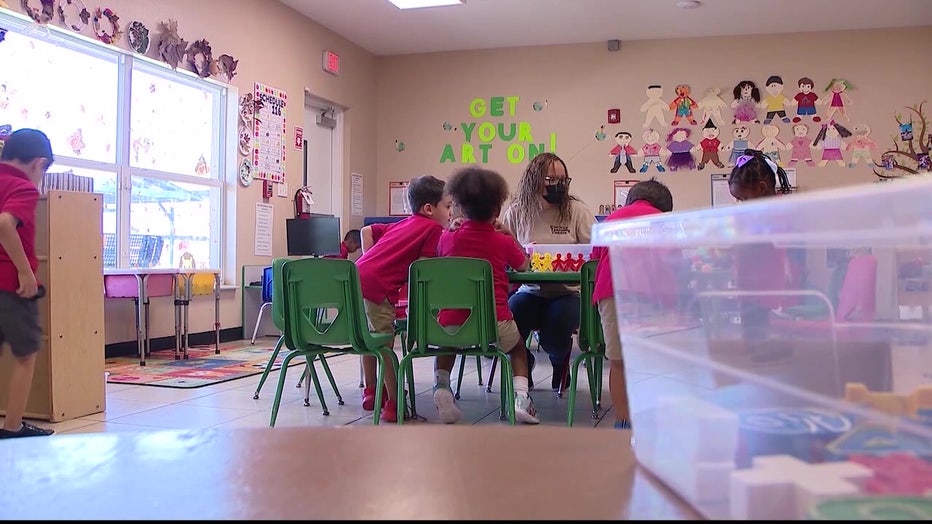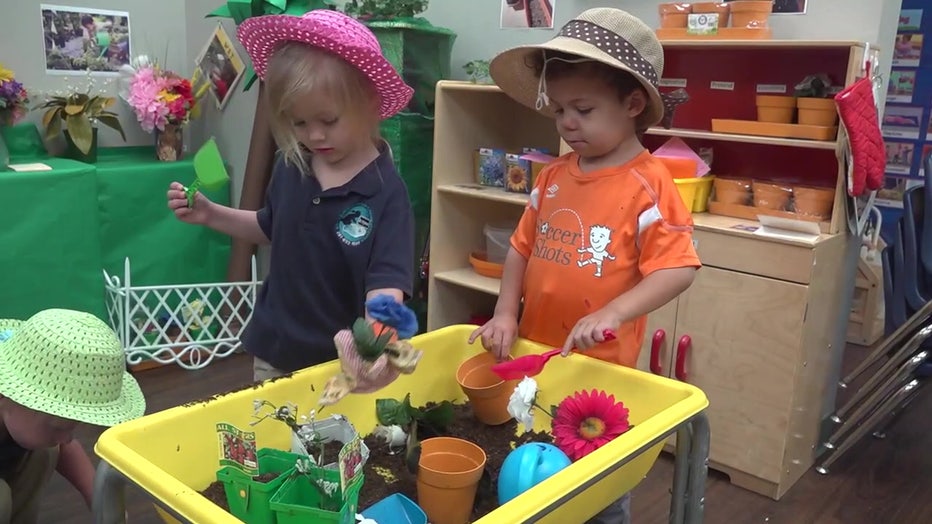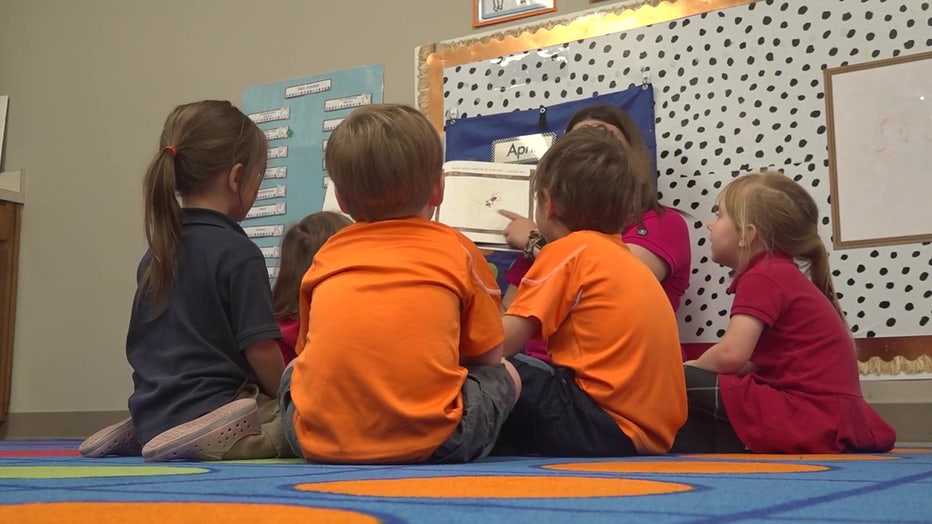More than 100,000 forced to miss work due to childcare issues in October
TAMPA, Fla. - More than 100,000 Americans were forced to miss work due to childcare issues last month – a record number, according to the US Bureau of Labor Statistics.
Experts told FOX 13 a nationwide childcare crisis reached a tipping point last month when an ongoing staffing shortage combined with a surge in respiratory illnesses, particularly among children.

"Lots and lots of children are getting sick, and they can't come to child care if they're sick," said Lisa Bragano, the manager of Hillsborough County's Child Care Licensing Division. "Child care programs typically do everything they can to prevent the spread of this stuff, so they just send those children home and then there is no one to care for the children, so the parents have to stay home."
READ: Children whose parents lack warmth more likely to grow up obese, study finds
Bragano said this situation has been decades in the making, with day care and preschool workers facing low wages, long hours and high expectations. Finding quality employees has been difficult.
"Lots of child care programs are shrinking their available capacity," Bragano said. "They're changing their operating hours. They're doing whatever they can to kind of get through. But it's very difficult to find staff at this point. Since [the COVID-19 pandemic], it really has exacerbated the problem."

As a result, families face long waiting lists to get into many child care programs, a problem many parents face in Tampa Bay.
USF Economist Michael Snipes believes this work-from-home trend may be here to stay.
PREVIOUS: Florida program aimed at keeping kids out of foster care, helping families stay together
"I think the people are really kind of starting to realize that that kind of traditional work structure is maybe not obsolete yet, but it certainly looks like it's moving in that direction," said Snipes. "As the younger people shift into the workplace and start to move into leadership positions, that's definitely something that could kind of tilt things more towards being more flexible and maybe being more adaptable and receptive to workers needs and that includes childcare."
A lot of parents in Tampa Bay wouldn't mind seeing that happen.

"It shows you exactly what kind of predicament we're in, these kids – we need help," said Lauren Justice, a Tampa mother of three young children who works from home and often has her children there with her. "It's kind of interesting because you answer the phone, and they hear a child in the background, and they're like, 'Oh, you've got your hands full.'"
Bragano said the childcare crisis has also made it difficult for families to find nannies and babysitters.
There are, however, often county-sponsored programs across the Tampa Bay area that can help parents find child care. In Hillsborough County, for example, families can contact the Early Learning Coalition of Hillsborough County.

